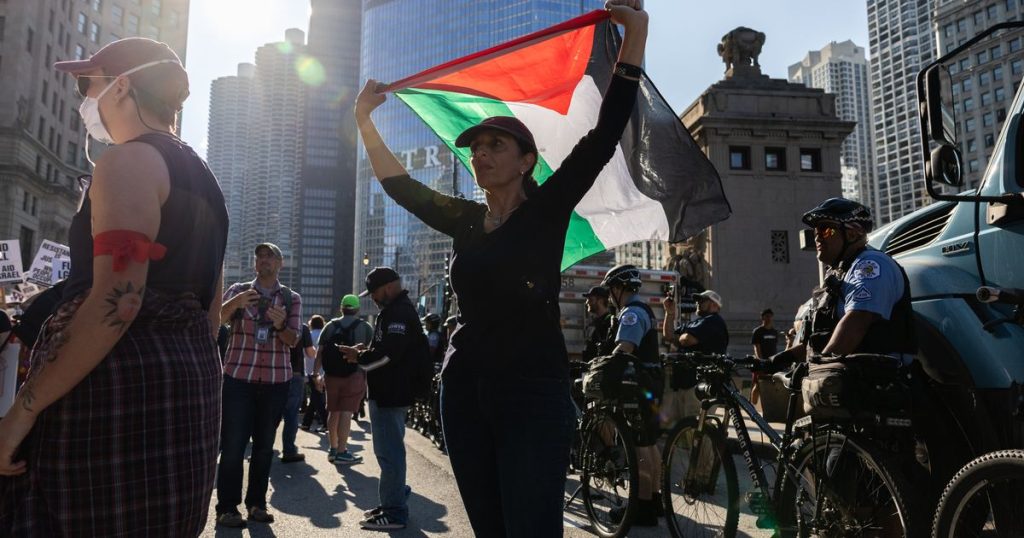Thousands of activists are gathered in Chicago for the Democratic National Convention, hoping to raise awareness on a variety of issues such as abortion rights, economic injustice, and the war in Gaza. Despite the excitement surrounding Vice President Kamala Harris’ acceptance of the Democratic nomination, progressive activists remain focused on their mission. Drawing inspiration from the Republican National Convention in Milwaukee, activists are anticipating larger crowds and more vigorous demonstrations in Chicago, known for its strong social activism roots. Demonstrations are planned throughout the convention, with a consensus among many activists for an immediate ceasefire in the Israel-Hamas conflict.
The Coalition to March on the DNC, the largest group of activists, has organized demonstrations on the first and last days of the convention. Organizers are expecting over 20,000 activists, including students who have protested against the war on college campuses. While some initial restrictions on protest locations were challenged in court, activists have been granted permission to demonstrate closer to the United Center where the convention is taking place. Despite some logistical challenges, the group is moving forward with its planned activities, including setting up a speakers’ stage in a nearby park and a scheduled march.
The Philadelphia-based Poor People’s Army, advocating for economic justice, is also planning events in Chicago. The group plans to set up at Humboldt Park on the city’s Northwest Side and will feature prominent speakers such as third-party candidates Jill Stein and Cornel West. Themes of economic inequality and brutality against poor and homeless individuals will be emphasized in their demonstrations. While some activists question the potential impact of a new Democratic nominee, many remain steadfast in their commitment to protest policies they deem harmful, including support for Israel’s actions in Gaza.
Pro-Palestinian protesters in Chicago have been vocal and visible, staging various demonstrations against Democratic policies they believe contribute to violence in Gaza. Some are planning an alternative one-day convention with third-party candidates to highlight their concerns. Amidst preparations for the convention, security concerns have arisen regarding the possibility of far-right extremists attending. Security has been tightened, with street closures and increased police presence around the convention center. Authorities have pledged to protect protesters’ First Amendment rights while maintaining public safety and preventing violence during demonstrations.
Local leaders in Chicago and Illinois have made necessary preparations for the influx of delegates, activists, and journalists attending the convention. A new train station near the United Center, along with beautification efforts in the city, and increased emergency preparedness in hospitals have been implemented to accommodate the large gathering. Despite lingering safety concerns, with memories of past violent protests during the 1968 convention, Illinois Gov. JB Pritzker has expressed confidence in ensuring peaceful protests. Activists, including those who have experienced past protests, remain committed to advocating for their causes and are determined to make their voices heard during the convention in Chicago.


